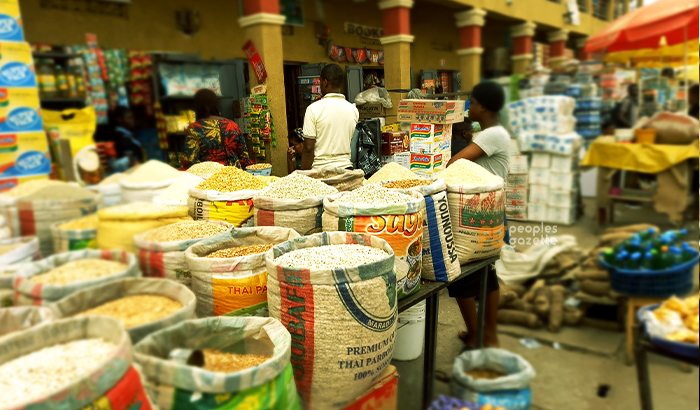Prices of beef, rice, yam and tomatoes surged the most in May on accelerating inflation, data from the National Bureau of Statistics show.
Nigerians paid an average of N2,520.52 for 1kg of beef in May 2023, a 24.2 per cent increase from N2, 029.59 in the same period of 2022, according to the data.
On a month-on-month basis, the average price of 1kg of beef (boneless) grew one percent to N2, 520.52 in May 2023 from N2, 495.69 in April 2023.
Similarly, the average price of rice, the main staple food in Nigeria, rose by 24.06 per cent year-on-year to N555.18 in May 2023 from N447.51 in May 2022.
The average price of 1kg of local rice increased month-on-month by 1.54 per cent from N546.76 in April 2023.
Yam (1kg), another common staple, rose by 22.84 per cent on a year-on-year basis to N457.25 in May 2023 from N372.23 in May 2022. On a month-on-month basis, it increased by 2.83 percent from N444.69 in April 2023.
In the same vein, the average price of 1kg of tomato increased by 17.68 per cent on a year-on-year basis to N498.34 in May 2023 from N423.48 in May 2022.
On a month-on-month basis, the average price of this item increased by 2.73 per cent in May 2023.
On state profile analysis, the highest average price of 1kg of beef was recorded in Imo state at N3,475.04, while the lowest was recorded in Kogi state at N1,790.14.
In terms of the average price of 1kg of local rice, Ondo recorded the highest price at N724.81, while Jigawa recorded the least at N369.09.
For yam, the highest average price of 1kg of yam tuber was recorded in Akwa Ibom at N924.17, while the lowest was recorded in Benue at N214.79.
Edo State recorded the highest average price of 1kg of tomato at N957.95, while the lowest was recorded in Kogi at N215.43.
On the back of these increases, inflation has slowed salaries and wage growth over the years. With accelerating inflation, the real value of wages continues to fall, affecting how far salaries go in the day-to-day life of employees.
Over 105 million Nigerians still live in extreme poverty, according to data from the World Poverty Clock of the Brookings Institute.
The World Bank recently said that Nigeria’s accelerating inflation has pushed an additional four million Nigerians into poverty in the first five months of 2023.





